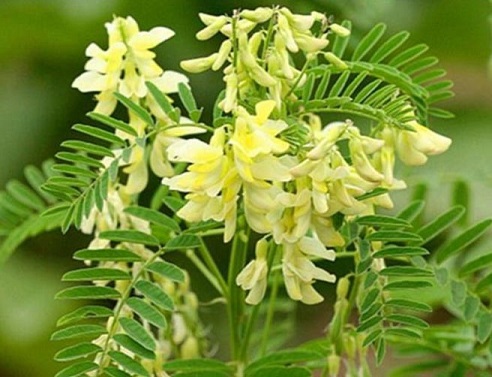Formononetin from Astragalus provides new hope against multidrug-resistant cancers
Nikhil Prasad Fact checked by:Thailand Medical News Team Aug 04, 2024 8 months, 3 weeks, 1 day, 20 hours, 14 minutes ago
Cancer News: A Revolutionary Discovery
In a groundbreaking study, researchers from the Department of Pharmacy at China Medical University in Taichung, Taiwan, have unveiled a promising natural compound that might turn the tide against multidrug-resistant (MDR) cancers. This
Cancer News report delves into their discovery, which has the potential to revolutionize cancer treatment.
 Formononetin from Astragalus provides new hope against multidrug-resistant cancers
The Challenge of Multidrug-Resistant Cancers
Formononetin from Astragalus provides new hope against multidrug-resistant cancers
The Challenge of Multidrug-Resistant Cancers
Cancer, a formidable adversary, becomes even more daunting when it develops resistance to multiple drugs. MDR cancers render conventional chemotherapy ineffective, posing a significant challenge in cancer treatment. This resistance is often due to the overexpression of P-glycoprotein (P-gp), a protein that pumps chemotherapeutic drugs out of cancer cells, reducing their efficacy. Overcoming this resistance is crucial for improving treatment outcomes and patient survival rates.
Formononetin: Nature’s Answer to MDR
Formononetin, a bioactive isoflavone found in the traditional Chinese herb Astragalus membranaceus, has shown promise in combating MDR cancers. This study explored formononetin's potential to inhibit P-gp and enhance the effectiveness of chemotherapeutic drugs.
Study Overview
The research team conducted various experiments to assess formononetin's impact on MDR cancer cells. They employed assays to measure cell viability, P-gp efflux inhibition, and synergistic effects with standard chemotherapeutic agents. Additionally, molecular docking studies were performed to understand the binding interactions between formononetin and P-gp.
Key Findings
-Inhibition of P-gp Efflux: Formononetin significantly inhibited P-gp's drug efflux function, leading to increased intracellular accumulation of chemotherapeutic drugs. This effect was evident in both rhodamine 123 and doxorubicin efflux assays, demonstrating formononetin's ability to uncompetitively inhibit P-gp.
-Synergistic Effects with Chemotherapy: When combined with chemotherapeutic agents like vincristine and doxorubicin, formononetin enhanced their cytotoxic effects on MDR cancer cells. This synergistic action suggests that formononetin could be used as an adjuvant therapy to boost the effectiveness of existing cancer treatments.
-Induction of Oxidative Stress: Formononetin induced oxidative stress in MDR cancer cells, disrupting their mitochondrial membrane potential. This oxidative stress contributed to the cells' increased sensitivity to chemotherapeutic drugs.
Molecular Docking Insights: The docking studies revealed that formononetin binds to P-gp through strong hydrogen bonds at specific amino acid residues, confirming its role as a potent P-gp inhibitor.
Mechanisms of Action
Formonone
tin's ability to combat MDR cancers lies in its multifaceted mechanisms:
-Oxidative Stress Induction: By increasing intracellular reactive oxygen species (ROS) levels, formononetin damages the cancer cells' mitochondria, leading to cell death.
-P-gp Inhibition: Formononetin binds to and inhibits P-gp, preventing the efflux of chemotherapeutic drugs and increasing their intracellular concentrations.
-Synergy with Chemotherapy: Formononetin works synergistically with conventional chemotherapeutic drugs, enhancing their effectiveness and potentially reducing the required dosage.
Potential Clinical Applications
The study’s findings suggest that formononetin could be a valuable addition to cancer treatment regimens, especially for patients with MDR cancers. By inhibiting P-gp and inducing oxidative stress, formononetin enhances the effectiveness of chemotherapeutic drugs, potentially improving patient outcomes.
Conclusion
Formononetin, derived from a traditional Chinese herb, offers a beacon of hope in the battle against multidrug-resistant cancers. Its ability to inhibit P-gp, induce oxidative stress, and synergize with existing chemotherapeutic agents highlights its potential as a powerful adjuvant therapy.
The study findings were published in the peer-reviewed International Journal of Molecular Sciences.
https://www.mdpi.com/1422-0067/25/15/8471
For the latest
Cancer News, keep on logging to Thailand Medical News.
Read Also:
https://www.thailandmedical.news/news/solanine-a-promising-ally-in-the-fight-against-drug-resistant-oral-cancer
https://www.thailandmedical.news/news/the-phytochemical-erianin-found-in-dendrobium-orchids-shows-promise-in-fighting-gastric-cancer
